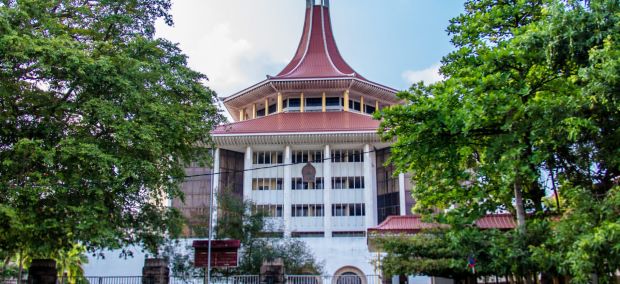On July 23, 2025, the Supreme Court of Sri Lanka delivered a historic ruling that reaffirmed the supremacy of the Constitution and the inalienable rights of citizens, even during times of national crisis. The Court found that emergency regulations imposed by then Acting President Ranil Wickremesinghe in July 2022 – used to suppress peaceful protesters during the height of the aragalaya – were unconstitutional and violated fundamental rights.
This is not just a legal milestone. It is a resounding affirmation that in a functioning democracy, power must be exercised with responsibility and restraint, and constitutional protections cannot be trampled in the name of security or order.
On July 17, 2022, amidst Sri Lanka’s worst economic collapse in living memory, President Wickremesinghe declared a State of Emergency effective the next day under Section 2 of the Public Security Ordinance. The government then issued sweeping Emergency (Miscellaneous Provisions and Powers) Regulations via Gazette Extraordinary No. 2289/07, granting the police and armed forces vast powers to search, arrest, and detain individuals without due process.
The regulations mirrored a similar set issued in May 2022 by former President Gotabaya Rajapaksa but introduced even harsher provisions. They expanded penal code applications under Regulation 12, allowing for life imprisonment for broadly defined offences such as ‘causing mischief’, and extended the detention period without judicial review from 24 to 72 hours under Regulation 17(2).
These laws were enacted days after widespread protests at Galle Face Green and elsewhere, where thousands of ordinary Sri Lankans – young and old – had peacefully called for accountability, economic relief, and democratic renewal.
Several civil society actors challenged these emergency regulations in the Supreme Court under SC FR No. 26/2022. The petitioners included Dr Paikiasothy Saravanamuttu of the Centre for Policy Alternatives, former Human Rights Commissioner Ambika Satkunanathan, and the Liberal Youth Movement.
Their arguments were rooted in Sri Lanka’s Constitution and the fundamental rights it guarantees to all citizens.
They argued that the regulations violated Article 11, by exposing people to arbitrary detention, cruel or degrading treatment; Article 12(1), by discriminating against peaceful protesters and violating the principle of equal protection under the law; Articles 13(1), 13(2), and 13(5), which protect individuals from arbitrary arrest, ensure the right to be informed of charges, and guarantee access to fair judicial process; and Article 14(1)(a) and (d), which protect freedom of speech and the right to peaceful assembly – rights central to any democracy.
By targeting unarmed citizens demanding reforms and deploying security forces to break up protests, the government, the petitioners contended, had crossed a constitutional red line.
A three-judge bench comprising Chief Justice Jayantha Jayasuriya, Justice Yasantha Kodagoda, and Justice Arjuna Obeysekera delivered the ruling. The majority decision, authored by Justice Kodagoda, was unambiguous: the emergency regulations were ‘arbitrary, unreasonable’, and failed to meet the test of ‘necessity and proportionality’ as required by the Constitution.
The Court emphasized that the President’s emergency powers do not override constitutional rights. Even in times of crisis, the State is bound by the rule of law.
The judgment declared both the emergency proclamation and the associated regulations unconstitutional. The Supreme Court reaffirmed its jurisdiction under Article 126 of the Constitution to hear such cases and rejected attempts by the Attorney General’s Department to argue otherwise. In doing so, it preserved the Court’s vital role as guardian of fundamental rights.
Most significantly, the ruling invalidated the emergency regulations and ordered the government to pay legal costs to the petitioners – a rare but important gesture of accountability.
In a lone dissent, Justice Arjuna Obeysekera argued that the emergency regulations were proportionate, given the gravity of the national crisis. He referenced the July 13 incident at Polduwa Junction and the possible disruption of Parliament’s scheduled election of a new president on July 20. In his view, decisive state action was necessary to protect democracy itself.
While his dissent underscores the complexity of balancing public order with civil liberties, the majority judgment reaffirmed the primacy of constitutional protections even in volatile times.
This ruling is a watershed moment in Sri Lanka’s legal and democratic journey. It underscores the power of the Constitution as a living document, one that must serve as a check on executive overreach and protect the rights of all citizens -especially during national emergencies when the temptation to silence dissent is greatest.
Under Article 132(3), Supreme Court rulings on fundamental rights are final and binding. This means lower courts and public authorities must comply, and that the ruling sets a powerful precedent for future emergency powers cases.
It is also a moral victory for Sri Lanka’s youth and civil society – the same groups that stood firm during the aragalaya, demanding better governance, social justice, and transparency.
As the petitioners themselves noted, “You are born with rights. You are born with liberty. These freedoms are not gifts from any government – they are yours by nature. And when they are violated, you have every right – and every reason – to stand up and reclaim them.”
The judgment sends a clear message: peaceful protest is not a threat to democracy – it is democracy in action. Governments must respect, not repress, citizens who raise their voices against injustice.
For the people of Sri Lanka, particularly the younger generation who led the aragalaya, this is proof that constitutional protections are real and that the judiciary can still function as an independent arbiter of justice.
It is also a reminder to all future governments: emergency powers must never become a tool for repression. They must be used sparingly, transparently, and in line with the Constitution.
At a time when Sri Lanka’s democratic institutions are under pressure and public trust in governance remains fragile, this ruling reaffirms that the law still speaks—and when it does, it can defend the powerless, check the powerful, and help reset the national moral compass.
-ENCL



Comments are closed, but trackbacks and pingbacks are open.